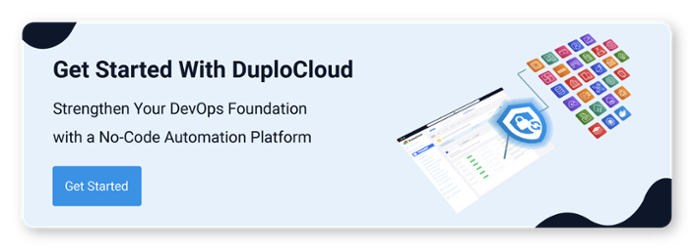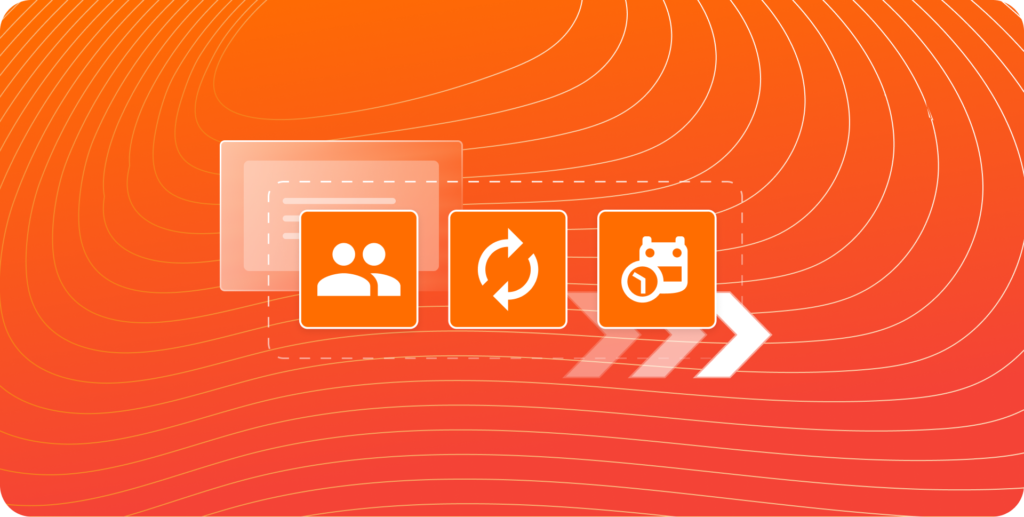Is your business maximizing cloud application platforms? Now that 94% of businesses provide cloud services, you need to protect yourself and your competition by choosing one. This choice helps you stay competitive and secure.
How about building a cloud application today? Cloud applications are designed to simplify work, promote commerce, and protect data, and everybody saves on them. A good cloud application platform enables easy and fast development.
Several platforms for cloud application development exist, and all will offer something different. The variations are in the software integration, security features, pricing, and customer support services. Each might have a list of pros and cons concerning your business, the application you are trying to build, and the extent of outside help you need.
We have looked into various cloud app development platforms; here are five of the top options. Choose the right one by considering its purpose, the number of users, and your budget.
Key Takeaways
- Cloud application platforms offer varying features, security protocols, pricing models, and support levels. Selecting the right platform depends on your development team’s expertise, budget, and business needs.
- AWS, Google Cloud, Microsoft Azure, and DuploCloud each bring unique advantages. This includes extensive integrations and AI capabilities to compliance automation and DevOps support.
- DuploCloud streamlines workflows with its DevOps-as-a-Service model. This reduces deployment times and operational costs. It also integrates seamlessly with AWS, Google Cloud, and Azure.
What Is a Cloud Application Platform?
A cloud application platform is any online service that can help develop, host, or support a cloud-based program. Since “cloud app” does not have a single, binding definition, a cloud app development platform could include any number of features. Some platforms are comprehensive, letting developers:
- Create
- Host
- Scale
- Refine their cloud apps
Others are more piecemeal, letting developers pick and choose the exact tools they need for the job.
Cloud application platforms offer various benefits. This includes enhanced security, automated infrastructure management, and seamless integrations with third-party services. Some cloud based application platforms focus on specific industries. These can include healthcare or finance, offering tailored compliance and security measures.
Others provide AI-driven tools to accelerate development and automate workflows. Additionally, cloud platforms can support different deployment models. These run from a public or a private cloud to hybrid environments. It depends on an organization’s needs.
Choosing the right platform requires evaluating factors like:
- Cost
- Ease of use
- Scalability
- The level of support provided.
The best platform for your cloud apps will depend on the software development team’s:
- Expertise
- Budget
- Audience
- Overall goals for the product
Cloud Application Platforms: The 4 Best Cloud Application Development Platforms
1: DuploCloud
DuploCloud offers a DevOps-as-a-Service platform. It streamlines workflows, ensures compliance, and boosts security. This helps cut down the time needed for deployments. This service isn’t a typical cloud application platform. It focuses more on infrastructure automation and orchestration than on creating apps.
DuploCloud easily integrates with AWS, Azure, and Google. It also provides full support for cloud migration. The service also meets security and privacy rules, like SOC 2 and GDPR. Developers have many options. They can create, deploy, and modify any app they want. This can happen wherever there is a stable internet connection. By default, DuploCloud costs between $3,000 and $6,500 per month.
ProgramWorks is a software company for businesses. They have easily migrated their customer and internal software to the cloud on DulploCloud. This move simplified their day-to-day work, eased data backups, and ensured maximum security for their data.
DuploCloud is a cloud application platform with an emphasis on automation and compliance. Some of its major capabilities comprise:
- Automated Provisioning: Makes resource management simple, efficient, and scalable.
- Security and Compliance: Offers best-in-class security in a cloud infrastructure compliant with industry standards.
- Continuous Monitoring: This allows monitoring and diagnostics in real-time and ensures continuous operations.

2: AWS Cloud Computing Services
Amazon Web Services is one of the power players in the cloud computing space. So, it’s no surprise that the company has its own cloud app development platform. AWS Cloud Computing Services isn’t just one software suite. It’s a complex network of connected tools.
Amazon Web Services (AWS) has all the resources to build an app from scratch. You now have artificial intelligence and machine learning included to help you write code with either finishing an accounting database, file archiving system or computer game. Whatever it is you are designing, AWS will support it.
It has over 300-odd tools to choose from and plenty of software integrations. It gets hard to visualize how to start or grow from there. In such a case, data protection is defined by the products you select.
Sireesh Babu Kilaru, Director of Engineering Citizen Bank, explains, “Confidently modernize and migrate your mainframe-based business applications to fully-managed, secure, and scalable cloud environments with global reach. Access proved toolsets, deep expertise, and certified competency partners to refactor, replatform, and augment mainframe applications using AWS.”
AWS comes with a pay-as-you-go pricing structure based on your requirements. Free tools are available for those who don’t require them, but more complex projects require paid tools through subscriptions or pay-as-you-go terms. With AWS, cloud app creation offers a lot of freedom to developers and increases the research workload.
Key features of AWS Elastic Beanstalk include:
- Automatic Scaling: Changes capacity with respect to traffic needs.
- Monitoring Tools: Provides health checks and resource management.
- Multi-Language Support: Works with Java,.NET, PHP, Node.js, Python, Ruby, and Go.
#3: Google Cloud
Most likely, Google is part of your daily routine. Use Google Chrome to browse the web or Google Workspace to create documents. With Google Cloud, you can use its resources to build and host your cloud apps.
Google Cloud highlights its scalability and software integrations. It is well-known for its involvement in open-source projects like Kubernetes and TensorFlow. The platform serves a variety of industries, from retail to media, to healthcare, to government offices. Right now, Google Cloud highlights AI’s benefits for app development. It provides AI-powered virtual agents, code generation, and security evaluations.
Google Cloud has a vast range of tools of all sizes and kinds, with no fixed pricing. Simple services for small organizations range somewhere under $100 per month, while full solutions for big organizations run into thousands. Google Cloud also gives a free trial of $300 worth of pre-built solutions.
Google App Engine is a fully managed, serverless application development and deployment service. It has excellent scaling support. Key features include:
- Automatic Scaling: Scales application traffic.
- Multi-language Support: Java, Python, Node.js, Go, and PHP support.
- Built-in Development Tools: Develop, debug, and monitor the app using the available tools.
#4: Microsoft Azure
Microsoft Azure is a leading name in corporate cloud computing. It provides over 40 solutions for web-based businesses. Azure is a versatile service. It works with many programs. This includes cloud app development, live-service video games, and IoT connectivity. Azure is pushing hard into AI. It offers tools that speed up app development. It also boosts search and enhances machine learning projects.
Azure offers over 200 tools. These include Azure Kubernetes Service, Microsoft Playwright Testing, and VPN Gateway.
The service provides various security options. These include firewalls, DDoS protection, and a cloud version of Microsoft Defender. These options let teams create and manage almost any app. They don’t have to build everything from the ground up. However, navigating Azure can be complex — as can figuring out its price structure.
Azure has many tools, each with different setup costs, which can most probably depend on how big the project is. For example, creating an AI chatbot for a small group of users might cost you nothing, while building a data storage app for a thousand users can run you tens of thousands of dollars a month.
Azure App Service is a platform-as-a-service application platform. Which is very easy to use in web app development, app deployment, and scaling. Its important features include:
- Multi-Language and Multi Framework Support: You can code in .NET, .NET core, Java, Ruby, Node.js, PHP, and Python.
- DevOps: Works seamlessly with GitHub, Azure DevOps, and other CI/CD.
- Enterprise-Level Security: Good security features and compliance standards.
The Biggest Advantages of Cloud Application Platforms
Faster Application Development and Deployment
Development has been made simple, fast, and automated with cloud platforms. Preconfigured environments with built-in development tools enable organizations to deploy applications almost instantaneously as compared to on-premise deployment.
On-Demand Scalability Without Infrastructure Overhead
This auto-scaling feature of cloud computing automatically adjusts the computing resources per traffic and workload. This is done in real-time, preventing businesses from paying for idling resources while giving desired performance whenever peak times occur.
Lower Costs with Pay-As-You-Go Pricing
It means that firms will have to pay for what they use, lowering their overall IT expenses. The pay-per-use pricing model is very effective for go-getters and budding companies.
Seamless Collaboration for Remote Teams
Because teams are spread over multiple locations, they can collaborate in real-time. Development, test, and operations teams could always work on the same code base in real time, thus saving time and increasing efficiency.
Built-in Security and Compliance
Security is the first and foremost in cloud providers’ minds. Top companies usually have end-to-end encryption, multi-factor authentication, and industry standards like SOC 2, HIPAA, and ISO 27001. Automated security patches have also been included to protect the application from cyber attacks.
Create Your Cloud Application with DuploCloud
DuploCloud
DuploCloud is a cloud application platform that can:
- Automate your DevOps workflows
- Accelerate your time-to-market
- Cut your operating costs by up to 75%
Our low-code/no-code DevOps automation platform offers comprehensive cloud migration services. We also offer full integration with AWS, Google Cloud, and Azure.
We have built-in compliance for standards like SOC 2, HIPAA, and GDPR. This ensures that your cloud platform applications meet industry regulations. And you won’t need extensive manual oversight. We offer the best of the best cloud application development services. Our platform simplifies infrastructure management. This enables developers to focus on innovation rather than configuration.
Whether you’re a startup looking to scale quickly or an enterprise seeking to optimize cloud operations, DuploCloud provides the automation and security you need.
You can get seamless deployment pipelines to real-time monitoring and support. DuploCloud empowers teams to build, launch, and manage applications efficiently. Call us for a demo now.
Frequently Asked Questions (FAQs)
What is a cloud application development platform?
A cloud application development platform is a service that helps developers:
- Create
- Deploy, and
- Manage cloud-based applications
These platforms offer various tools, integrations, and security features to support different types of applications. This runs from simple web apps to complex enterprise solutions.
How do I choose the right cloud application platform for my business?
The best platform depends on factors such as your budget, required features, scalability needs, and security requirements. If you need extensive customization, platforms like AWS and Azure offer flexibility, while solutions like DuploCloud simplify DevOps automation for faster deployments.
What are the cost considerations for using a cloud application platform?
Pricing structures vary by provider and usage. Some platforms offer pay-as-you-go models, while others charge flat fees or subscriptions. For instance, DuploCloud’s pricing starts between $3,000 and $6,500 per month, while AWS, Google Cloud, and Azure pricing depends on the selected services and scale of usage.
How does DuploCloud differ from other cloud application platforms?
DuploCloud focuses on DevOps automation, helping companies streamline deployments, improve security compliance, and accelerate cloud adoption. Unlike traditional cloud platforms, which require manual setup and management, DuploCloud automates infrastructure provisioning and integrates seamlessly with AWS, Azure, and Google Cloud.
What is more about a cloud application platform than a conventional on-premise offering?
Compared to old-fashioned on-premises options where organizations should have their own hardware and infrastructure, cloud application platforms are offered resources on the Internet. Internet strategy utilizes less surface area and gives better extensibility and flexibility.
What industries benefit the most from cloud application platforms?
Cloud application platforms are widely used across many sectors, but they tend to be particularly beneficial for industries that require scalability, remote accessibility, and strong security.
These include healthcare (electronic medical records and telemedicine), finance (fraud detection and digital banking), e-commerce (scalable online stores), gaming (real-time multiplayer support), and software development (agile development and deployment).
How do cloud application platforms handle data security and compliance?
Cloud application platforms implement various security measures, including data encryption, access controls, and automated security updates. Most major platforms comply with industry regulations such as GDPR, HIPAA, SOC 2, and ISO 27001.
They also offer tools for monitoring security threats, preventing unauthorized access, and ensuring secure data backups. Businesses can further enhance security by configuring custom policies and multi-factor authentication.



